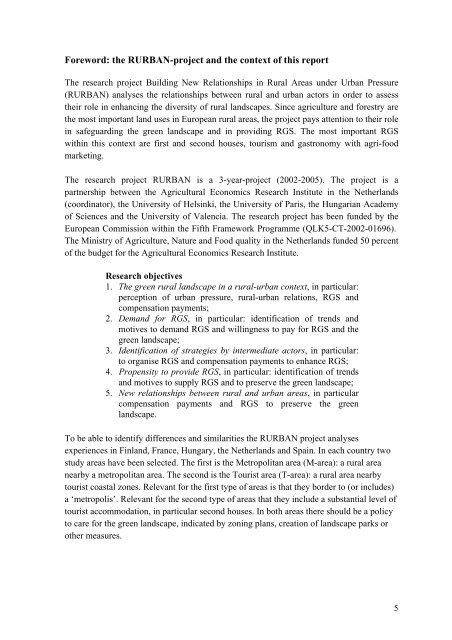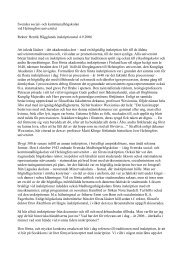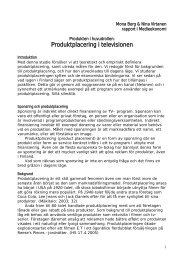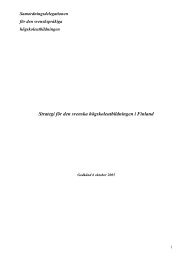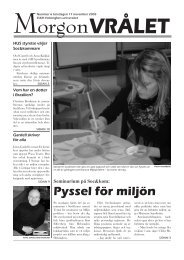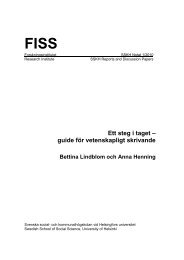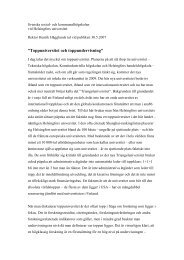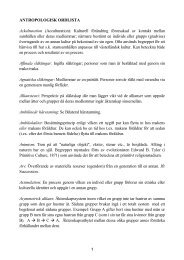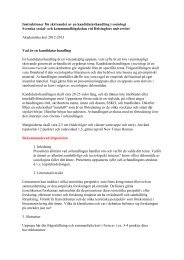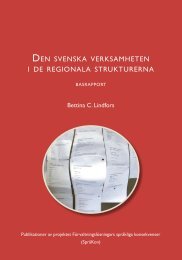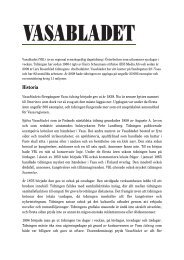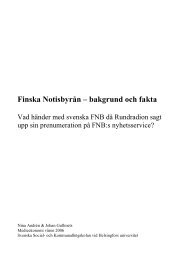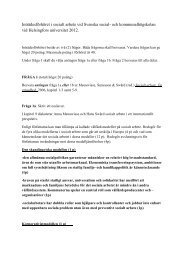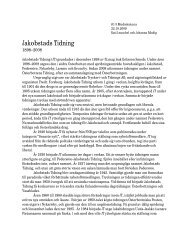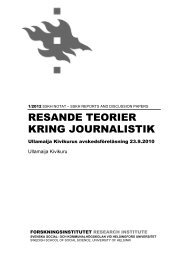FISS - Svenska social - Helsinki.fi
FISS - Svenska social - Helsinki.fi
FISS - Svenska social - Helsinki.fi
Create successful ePaper yourself
Turn your PDF publications into a flip-book with our unique Google optimized e-Paper software.
Foreword: the RURBAN-project and the context of this report<br />
The research project Building New Relationships in Rural Areas under Urban Pressure<br />
(RURBAN) analyses the relationships between rural and urban actors in order to assess<br />
their role in enhancing the diversity of rural landscapes. Since agriculture and forestry are<br />
the most important land uses in European rural areas, the project pays attention to their role<br />
in safeguarding the green landscape and in providing RGS. The most important RGS<br />
within this context are <strong>fi</strong>rst and second houses, tourism and gastronomy with agri-food<br />
marketing.<br />
The research project RURBAN is a 3-year-project (2002-2005). The project is a<br />
partnership between the Agricultural Economics Research Institute in the Netherlands<br />
(coordinator), the University of <strong>Helsinki</strong>, the University of Paris, the Hungarian Academy<br />
of Sciences and the University of Valencia. The research project has been funded by the<br />
European Commission within the Fifth Framework Programme (QLK5-CT-2002-01696).<br />
The Ministry of Agriculture, Nature and Food quality in the Netherlands funded 50 percent<br />
of the budget for the Agricultural Economics Research Institute.<br />
Research objectives<br />
1. The green rural landscape in a rural-urban context, in particular:<br />
perception of urban pressure, rural-urban relations, RGS and<br />
compensation payments;<br />
2. Demand for RGS, in particular: identi<strong>fi</strong>cation of trends and<br />
motives to demand RGS and willingness to pay for RGS and the<br />
green landscape;<br />
3. Identi<strong>fi</strong>cation of strategies by intermediate actors, in particular:<br />
to organise RGS and compensation payments to enhance RGS;<br />
4. Propensity to provide RGS, in particular: identi<strong>fi</strong>cation of trends<br />
and motives to supply RGS and to preserve the green landscape;<br />
5. New relationships between rural and urban areas, in particular<br />
compensation payments and RGS to preserve the green<br />
landscape.<br />
To be able to identify differences and similarities the RURBAN project analyses<br />
experiences in Finland, France, Hungary, the Netherlands and Spain. In each country two<br />
study areas have been selected. The <strong>fi</strong>rst is the Metropolitan area (M-area): a rural area<br />
nearby a metropolitan area. The second is the Tourist area (T-area): a rural area nearby<br />
tourist coastal zones. Relevant for the <strong>fi</strong>rst type of areas is that they border to (or includes)<br />
a ‘metropolis’. Relevant for the second type of areas that they include a substantial level of<br />
tourist accommodation, in particular second houses. In both areas there should be a policy<br />
to care for the green landscape, indicated by zoning plans, creation of landscape parks or<br />
other measures.<br />
5


